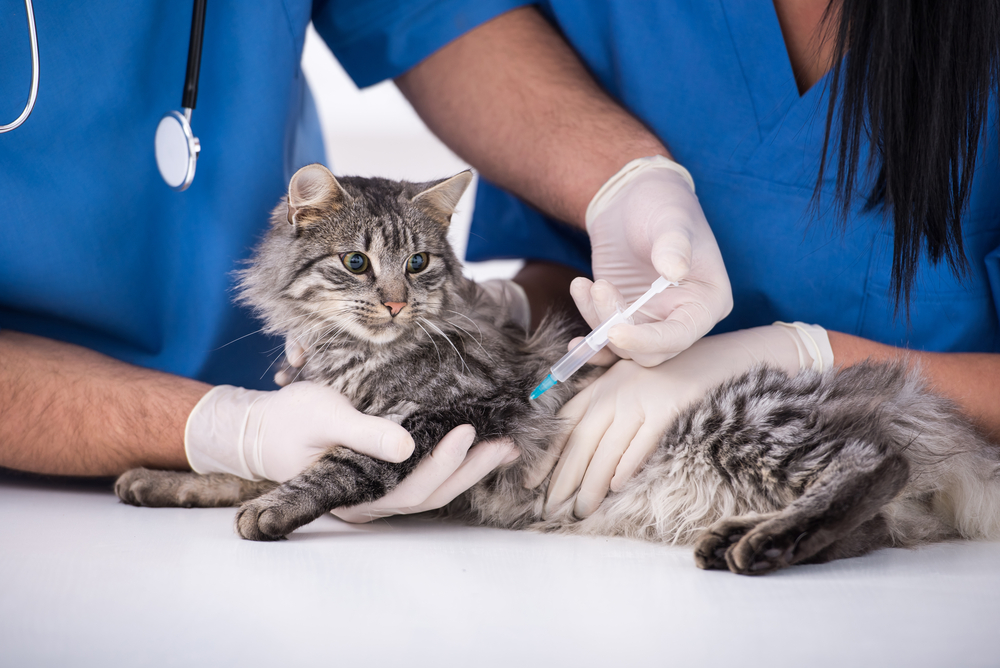
You try to take care of yourself by exercising, eating healthy foods, and seeing your physician regularly, and your pet can benefit from the same proper preventive care. Our team at Livermore Family Pet Hospital wants to help by explaining simple ways you can prolong your pet’s life.
#1: Ensure your pet sees a veterinarian once a year
Your family physician recommends regular checkups, and your pet should also receive routine wellness checks. Pets who are ill don’t always exhibit signs, because they instinctually hide their vulnerabilities, and you may not realize your pet is sick until their condition has reached an advanced stage. Yearly wellness exams are important to catch these issues early, when treatment and management leads to a better prognosis for your pet. Diagnostics employed to detect these conditions include:
- Physical exam — Our veterinary professionals will evaluate your pet from nose to tail. Assessing their weight will help us determine if they are overweight, which can cause significant health risks for pets. In addition, we can detect issues, such as heart problems, abdominal masses, and enlarged organs, during the exam.
- Blood tests — Routine blood work performed during a wellness exam includes a complete blood count (CBC) and a biochemistry profile. These tests can detect diseases such as diabetes, liver failure, and kidney disease.
- Urinalysis — We typically also evaluate your pet’s urine during a wellness exam, to test for conditions such as urinary crystals, diabetes, and kidney disease.
#2: Ensure your pet remains at a healthy weight
As mentioned, overweight pets are at increased risk for health risks such as diabetes, heart disease, kidney problems, and arthritis. If we determine that your pet is overweight, we will recommend a safe weight loss program. If your pet is at a healthy weight, we will recommend these steps to ensure their weight remains stable:
- Monitor your pet’s weight — Weigh your pet and evaluate their body conditioning score (BCS) twice a week to ensure they are not gaining weight.
- Exercise your pet — Ensure your pet receives enough exercise to keep them healthy and fit.
- Calculate your pet’s food — Use a calorie calculator to determine how many calories your pet needs per day, considering their pet’s age, weight, breed, activity level, and neuter or spay status.
- Measure your pet’s food — Use measuring cups to accurately measure your pet’s meal portions, as opposed to guessing the amount.
- Limit your pet’s treats — Limit your pet’s treats, and account for these calories in their overall daily requirements.
#3: Ensure your pet receives appropriate dental care
Periodontal disease affects the majority of pets and can cause significant problems, including loose, painful teeth, infected tooth roots, and organ damage when the bacteria enter your pet’s bloodstream. Providing appropriate dental care is the only way to protect your pet from these consequences. Steps to keep your pet’s mouth healthy include:
- Professional veterinary dental cleaning — Your pet should receive regular professional veterinary dental cleanings that involve anesthetizing your pet to safely and thoroughly remove plaque and tartar from their teeth, and to remove the bacteria under their gum line. Dental X-rays are also taken to accurately assess your pet’s dental health.
- Daily toothbrushing — You should train your pet to accept toothbrushing. Daily brushing is the best way to remove plaque from your pet’s teeth between professional veterinary dental cleanings. Ensure you use pet-friendly dental products, because human dental products can be toxic to pets.
- Dental chews — Chewing can remove some plaque and tartar from your pet’s teeth, and using dental products approved by the Veterinary Oral Health Council (VOHC) will ensure the chews are effective.
#4: Ensure your pet receives year-round parasite prevention
Many parasites can cause pets significant health issues, and year-round parasite prevention is the best protection from these dangerous issues.
- Heartworms — These troublesome parasites are transmitted by mosquitoes and cause severe damage to your pet’s heart and lungs. Numerous worms can survive in your pet’s heart, eventually leading to heart failure. In addition, enough worms in your pet’s heart can cause a blood flow blockage, which can result in sudden death.
- Ticks — Ticks carry debilitating diseases, such as Lyme disease, Rocky Mountain spotted fever, and ehrlichiosis, that can severely affect your pet’s quality of life, with life-threatening consequences in some cases.
- Fleas — Fleas can cause anemia in puppies and kittens. They can also transmit tapeworms and cause flea bite dermatitis, which can cause your pet significant discomfort.
- Gastrointestinal worms — Numerous gastrointestinal parasites cause issues such as malnutrition, diarrhea, and weight loss.
Numerous products are available that make year-round prevention easy and convenient. Our veterinary professionals can help you determine what products are best for your pet.
#5: Ensure your pet receives the recommended vaccinations

Keep your pet’s vaccinations up to date to protect them from preventable diseases. Our veterinary professionals will recommend the necessary core vaccines, as well as additional vaccines, depending on your pet’s lifestyle.
Providing appropriate wellness care is the best way to ensure your pet stays by your side as long as possible. If you would like to schedule a wellness exam or a professional dental cleaning, contact our American Animal Hospital Association (AAHA)-accredited team at Livermore Family Pet Hospital, so we can help add years to your pet’s life.

